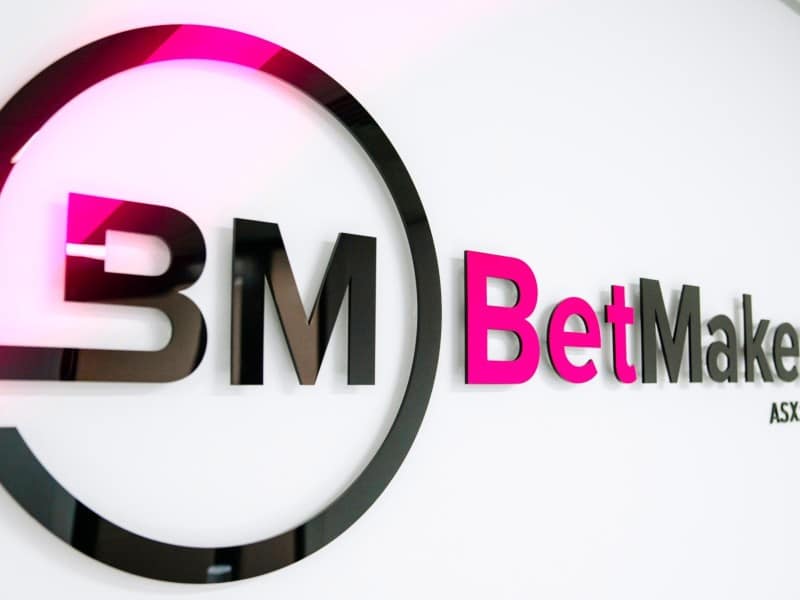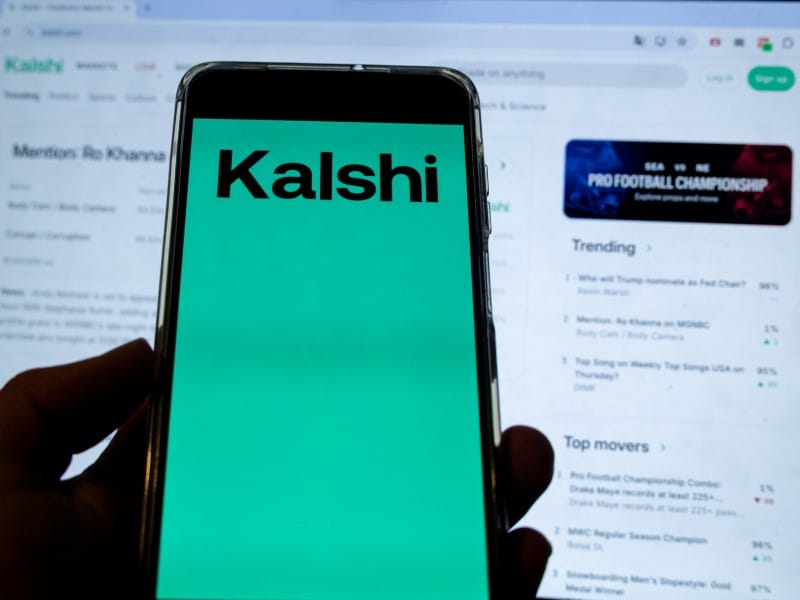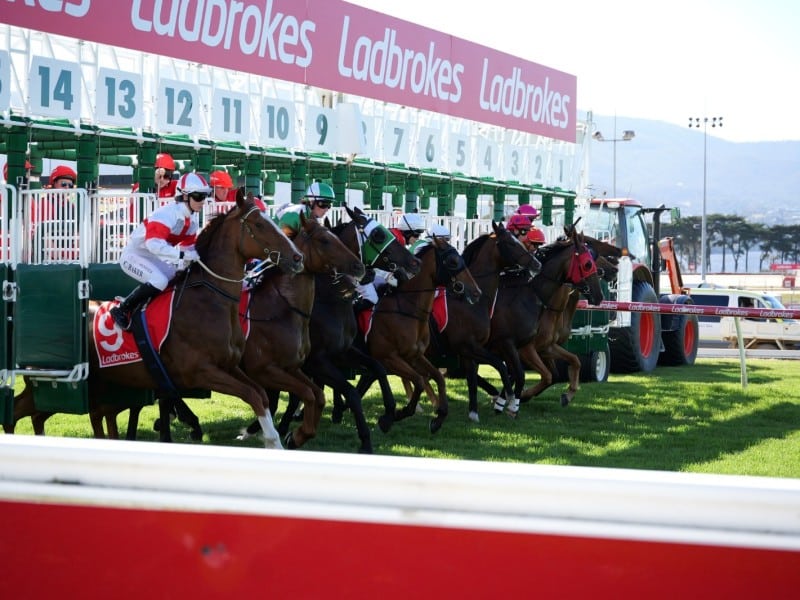Written In The Stars – ‘The ol’ horse racing itch came back’- Dave Appleton’s remarkable ride
When Dave Appleton grew too big to continue as a jockey, the boy from Clermont catapulted to international fame as a world rodeo champion. Now firmly ensconced in Texas, he tells Jessica Owers how he found his way back to thoroughbreds.
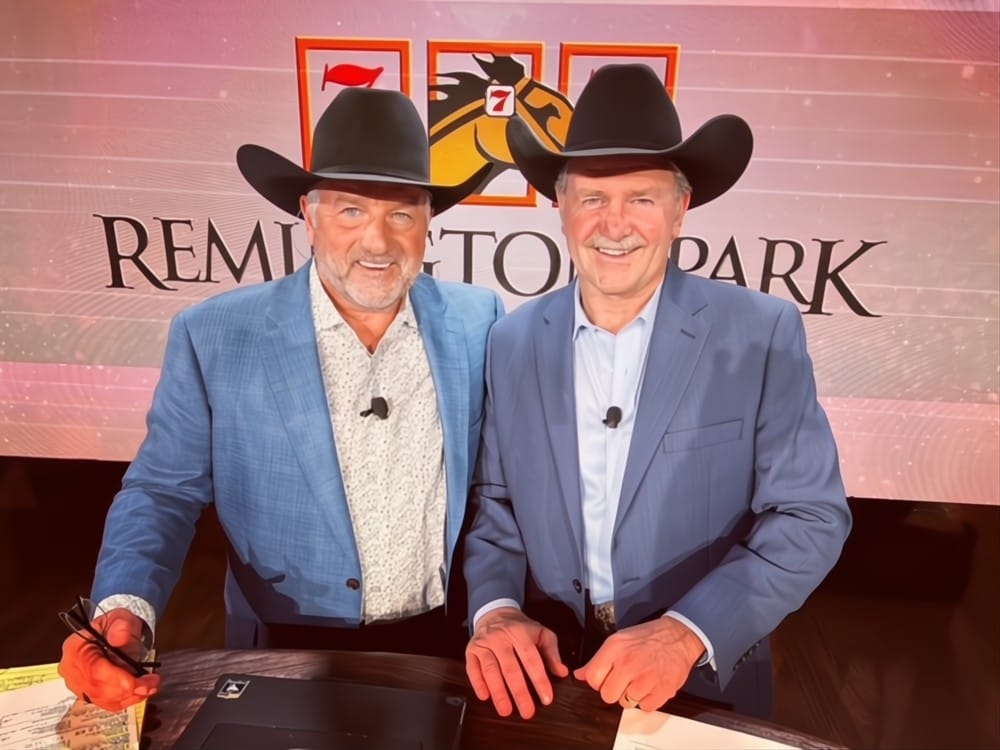
How does it feel? Pretty good, if you’re Dave Appleton.
Nearly 40 years ago, the Queensland cowboy known as ‘The Lone Roo’ won a rodeo world championship and found himself, spurs and all, in an ‘I Feel Like A Tooheys’ television commercial. It was the golden age of beer advertising in Australia, when men were manly and the jingles catchy.
And, at least according to Allan Johnston, who sang the Tooheys ads famous of the 1980s, ‘they shook their heads in wonder at this drover from Down Under’.
Appleton was from Clermont in Queensland, a cattle and mining outpost, where the local race club still hosts a couple of meetings per year. He fell into horses when seven years old and gifted a pony by a sympathetic uncle.
“My dad, who had been working on a cattle station, had been killed,” Appleton tells The Straight with a honied Texan drawl. “He was crushed under a portable water tank, and my mum was left with four kids and no money. I was given this chestnut pony called Fury, though he had a different name every other day, and I must have had that pony carry me a million miles.”
From Clermont in outback Queensland, the road to professional rodeo was straightforward. That’s what happens in those rough-stock outposts when the rodeo and races come to town.
But for Appleton, it was a road paved with thoroughbreds. The boy from Clermont was “racehorse mad” and desperate to be a jockey. As he slowly grew too tall, he squeezed his size 7 feet into size 9 shoes.
He spent a time at Eagle Farm, then rode the bush meetings and picnic circuit for a bit. When he was 15, too tall and heavy for fine-boned thoroughbreds, he discovered he was pretty fly on the back of bulls and broncs.
“Rodeo took me to a life I had never planned,” Appleton says. “I was this typical, dumb Aussie kid that didn’t know what I was supposed to be and didn’t know what I was supposed to do, so I just went on this grand adventure. The best way I can describe it is that I’m an Aussie gone walkabout with God.”
Appleton arrived on the American rodeo circuit in 1980, aged 20. He got into college in Texas. Eight years later in Las Vegas, he won the lucrative, top-dog World Champion All-Around Cowboy title on the bucking horse of the year, causing a bin fire by being the first pro-rider emblazoned with sponsorship (American Airlines).
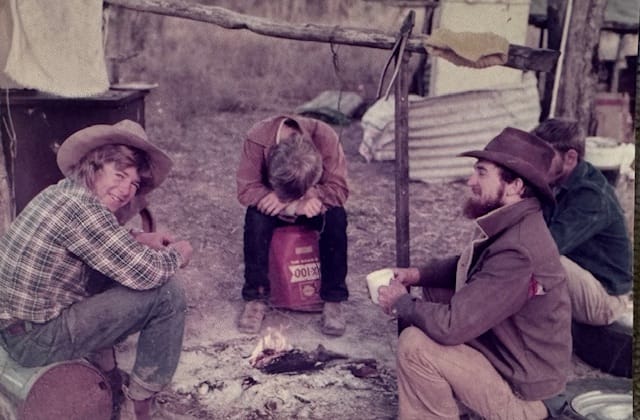
Said the Las Vegas Review-Journal some years ago; ‘They gave Appleton a ration of you know what (bad language), and then they compromised. The Lone Roo rode at the National Finals Rodeo with smaller, less obtrusive American Airlines patches on his chaps, and he rode like the dickens, and he won the whole damn shootin’ match.’
Appleton competed at the elite end for 15 years in both bareback and saddle bronc riding, and is credited with bringing corporate assistance into rodeo. He was, in 1990, named one of the ten ‘most magnetic men in America’, and appeared on Oprah, David Letterman and Good Morning Texas.
But you won’t find a single piece of ego.
“The rodeo career took me to a height that I could never believe,” he says. “I was truly blessed, and it was all because of that little horse.”
Appleton lives in Fort Worth, Texas, and his big ticket is oil and gas, maintaining its infrastructure and cleaning wells that have been drilled. He appeared in Dallas and in 1985 married Keely Santerre, a local girl and former Miss Texas contestant. They have a daughter, tv presenter and brand identity Fallon Appleton.
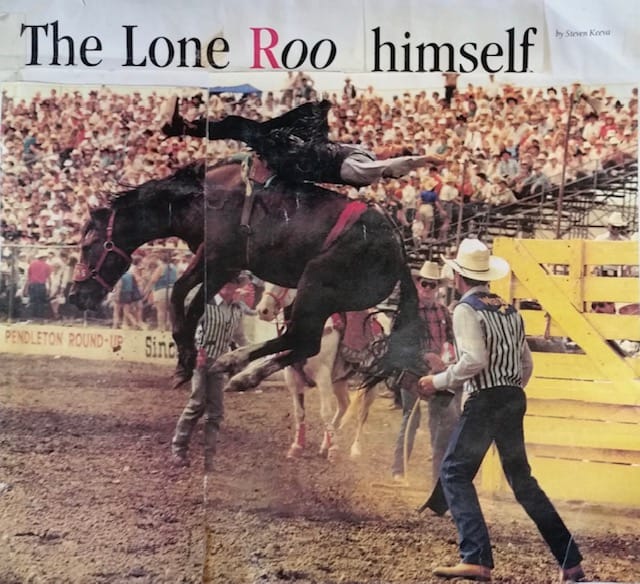
Australian-born Dave Appleton is a Hall Of Fame rodeo rider. but thoroughbreds have played a huge role in his life. (Photos: Supplied)
In 2016, The Lone Roo was inducted into the Pro Rodeo Hall of Fame and has been a consistent and popular commentator on ESPN’s cowboy channel. Eventually, that morphed into the network’s racing coverage of both thoroughbred and quarter-horse racing.
“The bulk of my TV work, and for the last seven years, is as part of the quarter-horse racing team, where I’m the in-studio host and analyst for the show Gate To Wire,” Appleton says. “I grew up with thoroughbred racing, but a horse is a horse, right?
“We cover the quarter-horse circuit from March through November. The show has been immensely popular and we’re expanding it into California this year.”
Quarter horses are the beloved American equine. However, Appleton rarely bypasses an opportunity to talk thoroughbreds, and 28 years ago he was there when his local track, Lone Star Park, opened for business.
Sat on Interstate 30, due west of Fort Worth in Grand Prairie, Lone Star Park was the first racecourse in Texas for over 50 years, owing to the state’s wowser-like attitudes to parimutuel betting. The track took its first wagers in 1996 and opened its gates to live racing in the spring of 1997.
“I’ve been at Lone Star since the day it opened,” Appleton says. “At the time, they were looking for someone who had some background in horse racing, somebody who could not only do the handicapping, but somebody who could do basic fan education, explaining the nuances of the game.
“I was doing a lot of TV stuff in rodeo, and Corey Johnson, who was then the general manager of the track, asked me if I would be interested in being his paddock host. I saw it as an avenue to broaden my TV exposure, but it really was a reignition of an old passion. The ol’ horse racing itch came back.”
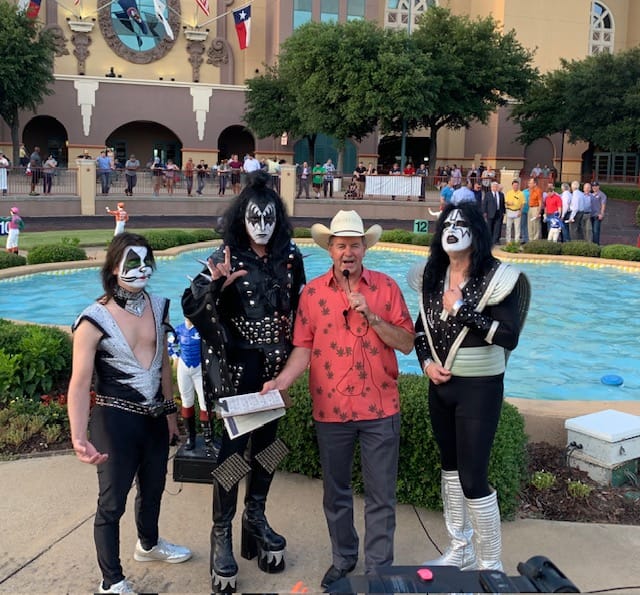
Lone Star Park races from April to mid-July, then September to November for the quarter horses. It hosted the Breeders’ Cup in 2004 when Ghostzapper demolished the Classic field for trainer Bobby Frankel.
Appleton is part of its furniture, along with track handicapper Rick Lee. Over time, his role has ballooned to cover the venue’s thoroughbred sales – a trainer’s two-year-old catalogue in early April, and a summer yearling sale in August.
“I’m at the stage now where I do a lot of bloodstock work,” he says. “Our yearling sale isn’t Keeneland, and it’s not Saratoga, but it’s what we call a very strong mid-west market. It carries a lot of the Texas-breds, Oklahoma-breds and Louisiana-breds, even some Kentucky-breds. It’s the main sale hub for a lot of local breeders.”
This year’s Texas Summer Yearling Sale raised a catalogue of 234 horses, the sale-topper being a colt by Aurelius Maximus (the leading second-crop sire in America’s southwest) that sold for US$95,000.
“We don’t have horses going for multiple millions,” Appleton says. “But we have had horses go through our sale that have qualified for the Kentucky Derby”, the most recent being Coal Battle, a stakes-winning colt that finished eleventh at Churchill Downs last May.
“They paid US$50,000 for him, and he was a big point-getter and has been very successful,” Appleton says. “So it’s not a sale that I would call a premier, big-time sale, but it’s like the old joke in this business… I’m yet to find a racehorse that can read its own pedigree.”
Appleton is the same upright cut of a cowboy he was in his Tooheys era. He wears a big Stetson, tucks his shirt in real nice, smiles often and thanks God. He has an everyday faith that is common in America’s Republican bible belt, and his manners are perfect cowboy.
“Am I the most religious person? No, but I say a prayer every day. Like most kids I was dragged to church when I was growing up in Clermont, but life gets you to a point where you realise there’s more than just you, that things didn’t happen just by chance.”
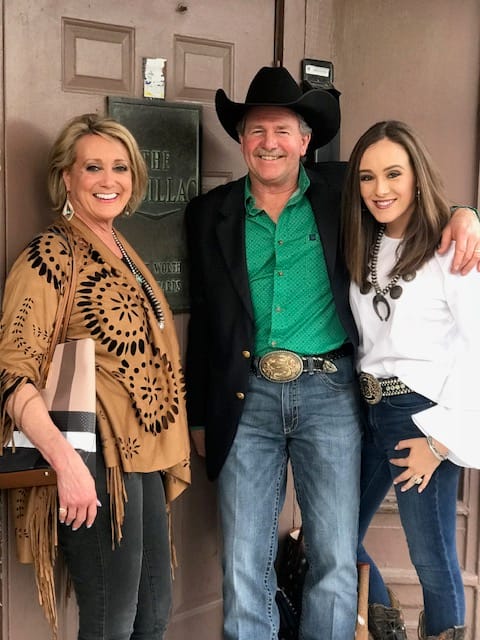
Family has remained at the core for Dave Appleton through his global career. (Photos: Supplied)
Eleven years ago, Keely survived a freak stroke and Appleton doesn’t think she got through it by accident. Equally, he credits his career in rodeo, and the subsequent journey, to something more divine than luck alone.
And yet, he says he is still trying to work out what he’s supposed to be.
“My biggest fear in life is failure. I love the challenge of making myself better every day, and if you ever get to where you think you’ve learned everything, be that in racing, commentary or handicapping horses, you’re going backwards.”
Earlier this year, Appleton was interviewed by the ABC’s Foreign Correspondent programme about life under Trump for ex-pat Australians. He said America had been good to him and continues to be good to him, and he never forgets it.
He says that, despite the opportunities that exist in the US, there aren’t many Australians there in horse racing. He mentions race caller (and fellow Queenslander) Michael Wrona, the lungs of California’s Los Alamitos racetrack, and Muswellbrook-born Ian Wilkes, who is training out of Kentucky.
“Other than them really, I don’t see a lot of Aussies over here, which is understandable with things so lucrative in Australia.”
It’s been many years since Appleton was last here, even longer since he graced a big-money Australian raceday. In 1989, when in the spidery heights of his cowboy fame, he presented the AJC St Leger trophy to Tawrrific, who won the Melbourne Cup later that year.
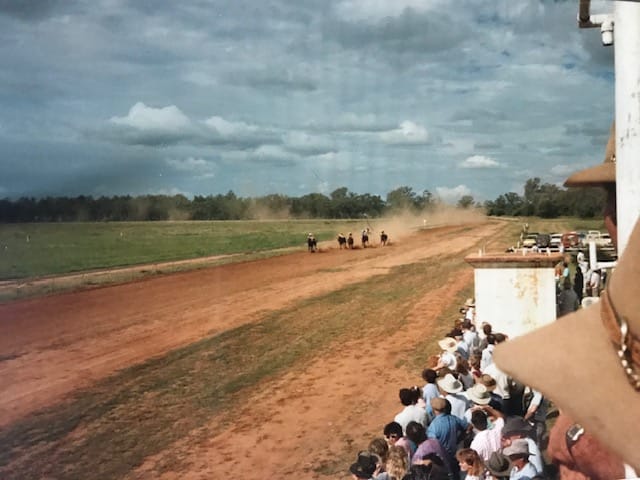
Dave Appleton’s return to Australia in 1989 took in the AJC St Leger as well as a visit to the Clermont races. (Photos: Supplied)
Appleton still feels like an Aussie, though his accent would beg to differ and he is infinitely better-known in America. Just recently, on August 15, he became an American citizen, and only because his green card had become an antique.
“What took me so long?” he asks. “Well, if I couldn’t be president, why the bloody hell would I want to be an American?”
But an American he is, and Appleton has an everyday fame in his parts. People approach him in the street and he counts his blessings, every day, for the life he has had.
“Was there a correct path? No. Was there an opportunity and did I make a path? Yes. Did I think at the time that it was a path? No, I just did what I thought I could do at the time. And was I good at it when I started? No, but if you study hard enough and you look hard enough and you work hard enough, and it’s something you love, you’re really not working at all.”

